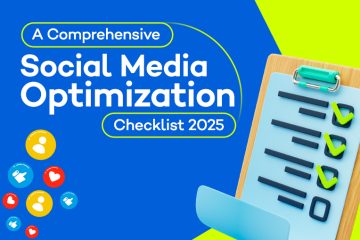Performance Marketing has become a dominant strategy for businesses looking to drive measurable results. Unlike traditional advertising, which focuses on brand awareness, performance marketing is entirely data-driven and action-based. Marketers only pay when a specific action—such as a click, lead, or sale—occurs.
A performance marketing company specializes in optimizing campaigns for businesses, ensuring that every dollar spent contributes to conversions. Similarly, a performance marketing agency helps brands develop strategic, performance-driven campaigns that maximize ROI through advanced analytics, audience targeting, and real-time adjustments.
In this article, we will explore the key strategies, metrics, and latest trends that make performance marketing a must-have for businesses in 2025.
1. How Performance Marketing Works: The Basics
Performance marketing operates on a cost-per-action (CPA) model, ensuring that advertisers pay only when a specific action occurs. This model differs from traditional advertising, where costs are incurred regardless of engagement or conversions.
The Key Elements of Performance Marketing:
✔ Advertisers & Businesses: Companies that want to promote their products or services.
✔ Performance Marketing Platforms: Google Ads, Facebook Ads, LinkedIn Ads, etc.
✔ Target Audiences: Users who are reached through advanced audience segmentation.
✔ Payment Model: Cost incurred only when predefined actions occur (clicks, leads, purchases).
2. Why Performance Marketing is Essential in 2025
With increasing competition in digital marketing, businesses need data-backed strategies to optimize their marketing budgets. Performance marketing offers a scalable, measurable, and highly targeted approach that aligns with business goals.
Key Benefits of Performance Marketing:
a) Maximized Return on Investment (ROI)
Since businesses only pay for actual conversions, every dollar spent is optimized for profitability and growth. Performance marketing helps brands track cost-per-acquisition (CPA) and ensures that budgets are allocated efficiently.
b) Precision and Real-Time Adjustments
With real-time analytics, performance marketing allows businesses to fine-tune campaigns instantly. Marketers can adjust bids, target audiences, and creatives to enhance results.
c) Scalability and Flexibility
Unlike traditional marketing, which requires fixed ad spending, performance marketing enables businesses to scale successful campaigns while eliminating underperforming ones.
3. Key Channels for Performance Marketing Success
Performance marketing leverages multiple digital channels to drive measurable actions. Here are some of the most effective platforms:
a) Paid Search Advertising (PPC)
Google Ads and Bing Ads allow businesses to bid on high-intent keywords, ensuring their ads appear when users actively search for relevant products or services.
b) Social Media Advertising
Platforms like Facebook, Instagram, LinkedIn, and TikTok provide hyper-targeted advertising, allowing businesses to reach audiences based on age, behavior, and interests.
c) Display & Retargeting Ads
Display advertising places visual ads across websites, while retargeting ensures that users who previously visited a site are reminded to complete their actions.
d) Affiliate & Influencer Marketing
Businesses partner with affiliates or influencers who promote their brand, and they only pay when a sale or lead is generated.
4. Performance Marketing Metrics & KPIs You Must Track
To ensure campaign success, marketers track key performance indicators (KPIs). Here are the most critical performance marketing metrics:
a) CPM (Cost Per Mille)
✔ Measures the cost for 1,000 ad impressions.
✔ Indicates how much businesses pay to increase brand exposure.
✔ Does not track engagement or conversions, making it less action-focused.
b) CPC (Cost Per Click)
✔ Measures the cost paid every time a user clicks on an ad.
✔ A lower CPC means higher efficiency in driving traffic.
✔ Often used in search and social media advertising.
c) CPA (Cost Per Action)
✔ Tracks how much is spent for each completed action (e.g., sign-up, purchase).
✔ One of the most important performance marketing metrics.
✔ Used to measure profitability and optimize ad spending.
d) LTV (Lifetime Value of a Customer)
✔ Predicts how much revenue a customer will generate over their lifetime.
✔ Helps businesses understand customer retention and loyalty.
✔ Enables better budget allocation for long-term customer acquisition strategies.
By focusing on these key metrics, a performance marketing agency ensures that businesses optimize budgets, increase ROI, and drive more valuable conversions.
5. Performance Marketing Trends to Watch in 2025
As technology evolves, so do performance marketing strategies. Here are the biggest trends for 2025:
a) AI-Driven Performance Marketing
Artificial intelligence (AI) is revolutionizing performance marketing by automating audience targeting, bid adjustments, and creative optimization. AI-powered insights allow businesses to predict trends and adjust strategies in real-time.
b) Multi-Channel Advertising & Cross-Platform Integration
In 2025, businesses must seamlessly integrate multiple ad channels (Google, Facebook, Instagram, LinkedIn, etc.) for consistent messaging and better conversions.
c) Video & Interactive Ads
With the rise of short-form video content (TikTok, Reels, YouTube Shorts), brands must incorporate video ads to capture attention and increase engagement.
d) Privacy-First Marketing & Data Compliance
With increased privacy regulations (GDPR, CCPA), businesses need to focus on ethical data collection and privacy-first strategies.
6. Why You Need a Performance Marketing Agency
Partnering with a performance marketing agency helps businesses navigate the complexities of digital advertising, ensuring higher efficiency and lower costs.
a) Expertise in Campaign Optimization
Performance marketing agencies analyze campaign data, audience behaviors, and bid strategies to maximize ROI.
b) Strategic Budget Allocation
Agencies ensure that ad spend is optimized, balancing high-performing and low-performing campaigns to increase efficiency.
c) Advanced Tracking & Reporting
A performance marketing agency provides real-time analytics and custom reports, helping businesses make data-driven decisions.
The Future of Performance Marketing in 2025
Performance marketing has transformed how businesses advertise online, providing a cost-effective, scalable, and results-driven approach to digital marketing. Whether through PPC, social media ads, or affiliate marketing, businesses can now optimize every dollar spent.
A performance marketing agency helps brands analyze data, refine strategies, and maximize conversions. With the rise of AI-driven marketing, multi-channel integration, and privacy-first advertising, businesses must adapt to emerging trends to stay competitive.
If your business wants to increase ROI and drive more conversions, now is the time to invest in performance marketing. Partner with a trusted performance marketing company today and start seeing real, measurable success.





0 Comments